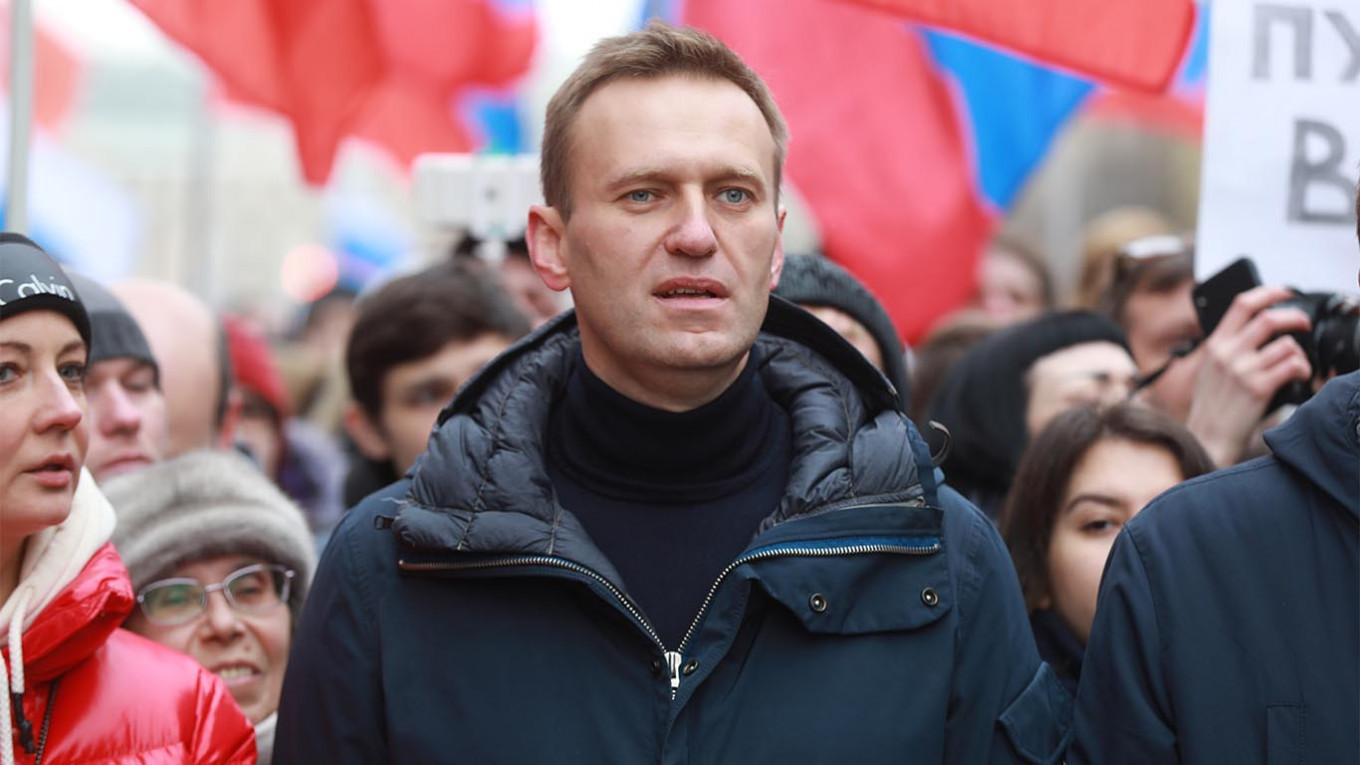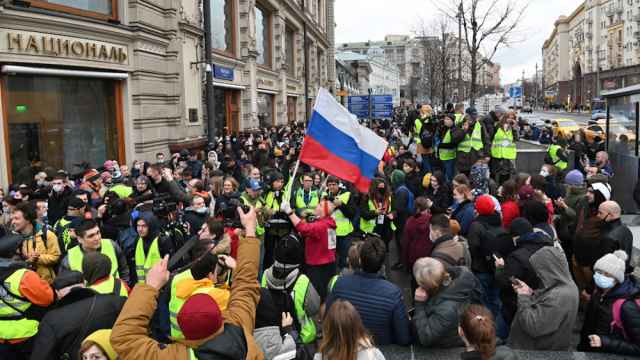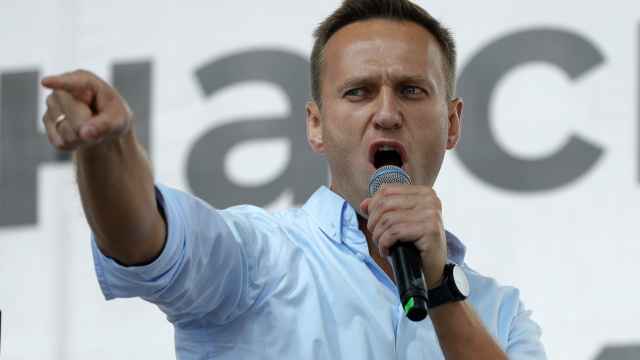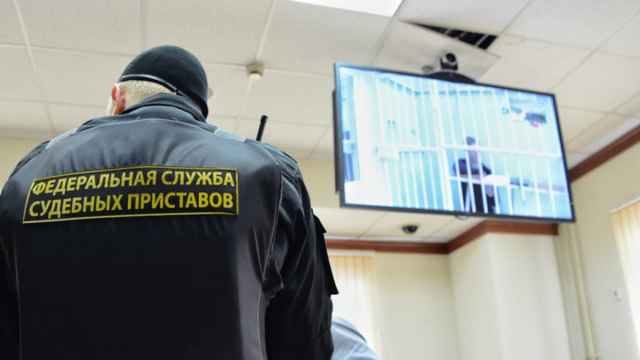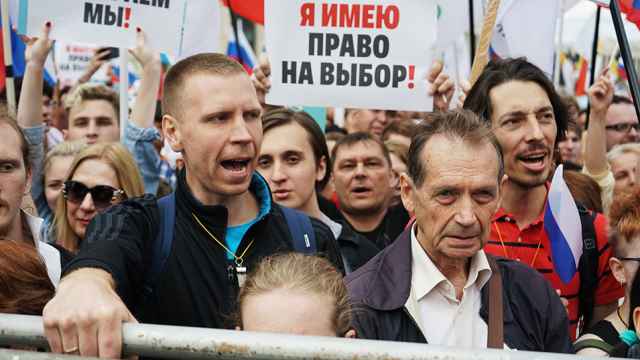Russians view jailed Kremlin critic Alexei Navalny in an increasingly bad light and largely approve or remain indifferent toward the authorities’ decision to brand his political movement as “extremist,” according to an independent survey published Friday.
The Levada Center polling agency said 14% of its respondents approve of Navalny’s activities, dropping from 20% last year and 19% earlier in 2021.
Another 62% said they do not approve of Navalny’s activities, a figure that has grown 12 percentage points since September 2020. One-quarter of Levada’s respondents were either indifferent or could not answer.
The anti-corruption campaigner was sentenced to 2.5 years in prison in February on old fraud charges he calls politically motivated after surviving a nerve agent poisoning he blames on the Kremlin. His arrest upon returning to Russia from poisoning recovery in Germany helped spark nationwide protests where thousands were detained.
Asked about last month's court decision blacklisting Navalny’s political and activist networks — both peaceful opposition movements — as “extremist,” 32% said they approve and 27% don’t approve of the ruling. Another 41% were either indifferent or unable to answer, Levada said.
The court ruling and a newly passed law banning “extremists” from running for parliament has effectively shut out Russia’s most effective grassroots opposition force from this September's high-stakes elections.
When Levada split the respondents into sub-groups, the results showed a higher share of anti-Navalny attitudes among older Russians and those who approve of President Vladimir Putin.
Respondents in the 40-54 group and those aged 55 and older were more likely to approve of the “extremist” designations on Navalny's groups (32% and 45% each) than disapprove (24% and 23%).
Conversely, respondents in the 18-24 and 25-39 age groups were more likely to disapprove of the designations (33% and 32% each) than approve (20% and 19%).
Among Putin supporters, approval for the “extremist” designations was split at 40% approval to 20% disapproval. Those respondents who told Levada they don’t approve of Putin’s activities held a diametrically opposite view at 16% to 42%, respectively.
Levada conducted the survey among 1,630 respondents in 137 Russian towns and cities between June 24-30.
A Message from The Moscow Times:
Dear readers,
We are facing unprecedented challenges. Russia's Prosecutor General's Office has designated The Moscow Times as an "undesirable" organization, criminalizing our work and putting our staff at risk of prosecution. This follows our earlier unjust labeling as a "foreign agent."
These actions are direct attempts to silence independent journalism in Russia. The authorities claim our work "discredits the decisions of the Russian leadership." We see things differently: we strive to provide accurate, unbiased reporting on Russia.
We, the journalists of The Moscow Times, refuse to be silenced. But to continue our work, we need your help.
Your support, no matter how small, makes a world of difference. If you can, please support us monthly starting from just $2. It's quick to set up, and every contribution makes a significant impact.
By supporting The Moscow Times, you're defending open, independent journalism in the face of repression. Thank you for standing with us.
Remind me later.


